11 Amazing Health Benefits And Uses Of Rice Vinegar
This wonder home ingredient from the East is packed with impressive properties.
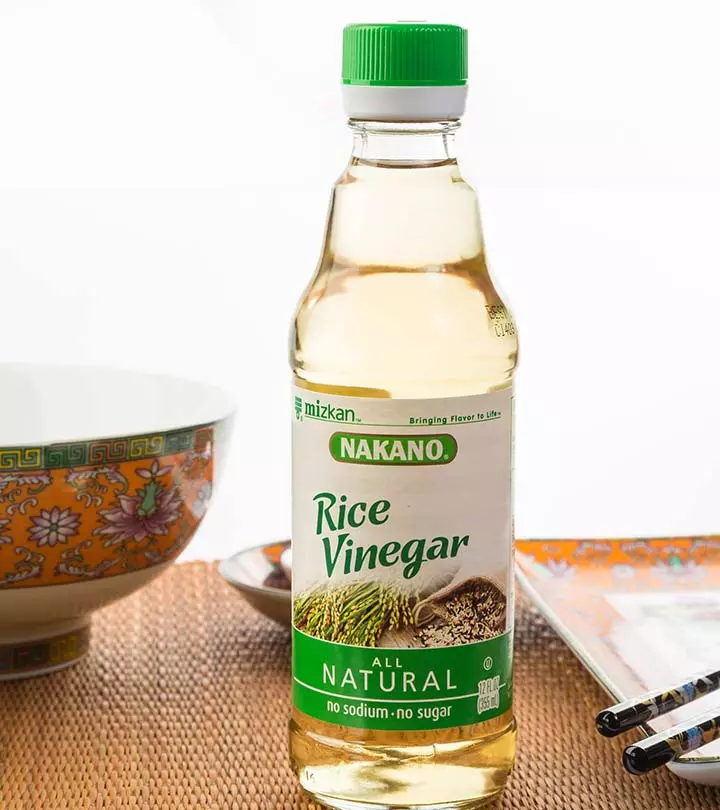
Image: Shutterstock
Rice vinegar is a popular condiment in Asian cuisine. Derived from rice by fermentation, it is used to flavor salads, soups, and meat dishes. Other than its subtle Asian flavor, there are a host of rice vinegar benefits as well! When compared to regular white vinegar, rice wine vinegar is mildly acidic and can easily blend in a number of recipes!
Rice vinegar is becoming more popular not only in Asian dishes but also in health-focused diets around the world. With its distinct flavor and numerous health benefits, it is a great addition to any kitchen.
But what is rice vinegar? What is rice vinegar used for? Can it be used in pickles? Don’t worry. We can help you with these answers and more. Read on to learn more about rice vinegar’s many benefits and how you can include it in your diet!
 Know Your Ingredient: Rice Vinegar
Know Your Ingredient: Rice VinegarWhat Is It?
Vinegar made in East and Southeast Asia via the fermentation of rice.
What Are Its Benefits?
It is used to improve digestive health, liver health, and immunity and beat fatigue.
Who Can Use It?
It can be used/consumed by anyone, especially people with acidity.
How Often?
It can be used daily and is used extensively in East Asian cuisines as a condiment.
Caution
When stored improperly, it can become toxic and cause food poisoning.
In This Article
Rice Vinegar – A Brief:
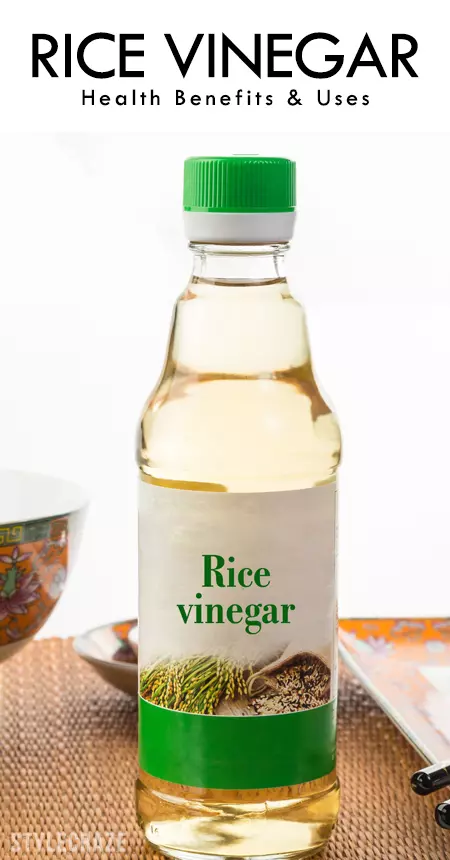
Derived from either rice or rice wine, rice vinegar is used as a condiment in Asia and other continents extensively. Since its acidity quotient is lower than other types of vinegar, it is not suitable for preserving and pickling foods. However, it is used extensively as a condiment with salads and in cooking several meat-based dishes. Rice vinegar adds a subtle flavor to the dishes, but it also offers you a number of health benefits.
It is available in several varieties. Broadly speaking, there are two types of rice vinegar – unseasoned and seasoned. For maximum benefits, you need to use the unseasoned variant. There is a sweet rice wine named mirin that contains alcohol, but it is different from rice vinegar.
 Trivia
TriviaKey Takeaways
- Rice vinegar is low in calories, and it improves digestion. You can have it as a salad dressing or a condiment.
- It improves your skin and delays signs of aging due to the presence of antioxidants in it.
- You can keep this fermented item for long periods.
Benefits Of Rice Vinegar
Following are the top 11 rice vinegar benefits:
1. May Improve Digestive Health
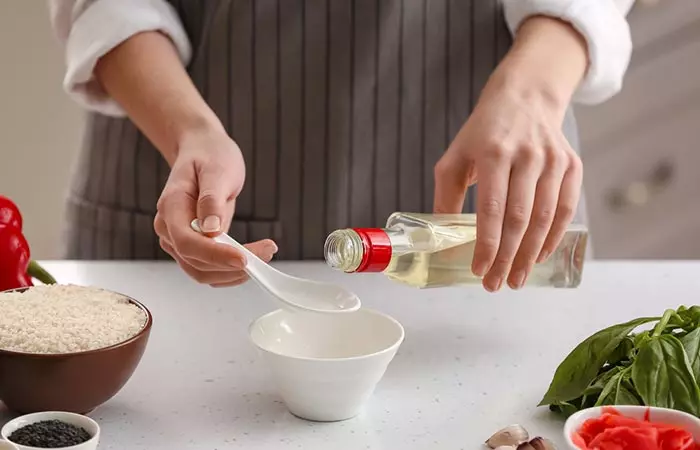
There is a good amount of acetic acid in rice vinegar. This acid may aid in boosting your digestive health (1). It also helps your body absorb more nutrients from the foods you eat. Thus, your body would be able to absorb more calcium, potassium, and vitamins from foods, which are beneficial for health. You can use 1-2 tablespoons of rice vinegar in your salad dressings, meat marinades, or vegetable pickles to make the most of its benefits.
2. Has Antiseptic Properties
Brown rice vinegar is used widely in making antiseptic medicines. It can eliminate detrimental bacteria upon contact and hence is used in several native medications to treat myriad health conditions (2).
3. May Act As A Liver Tonic

One variant of Japanese rice vinegar named kurozu, made by fermenting brown rice, reportedly has protective benefits for the human liver (3). This has been corroborated by a 2011 study published in the coveted “Journal of Clinical Biochemistry and Nutrition”. The researchers are of the view that it has the potential to thwart the onset of liver tumors.
4. May Help Beat Fatigue
Rice vinegar contains a moderate amount of amino acids. These may effectively fight the development of lactic acid in your blood. Lactic acid development results in stiffness, irritability, and fatigue. Hence, reducing lactic acid buildup keeps you fresh and energetic throughout the day. The bioactive compounds in vinegar also possess anti-fatigue properties (4).
 Trivia
Trivia5. May Improve Immunity

One of the best benefits of rice vinegar is that it helps in boosting immunity (5). Rice vinegar contains essential amino acids. These help you in achieving optimum health. These amino acids help fight the damaging effects of free radicals or oxidative stress (6). They also help boost immunity.
6. May Improve Heart Health
Rice vinegar aids in preventing fatty peroxide formation in your body. This in turn helps slow down cholesterol build-up on the walls of blood vessels (7). So, in the long run, your heart benefits greatly by including a few teaspoons of this vinegar in your daily meals.
7. May Keep Weight In Check

If losing excess weight is a priority for you, consuming rice vinegar with food can be quite helpful. Animal studies have indicated it helps in losing excess flab to a great extent (8). In fact, Japanese people have used it for ages to aid weight loss. The vinegar made from brown rice is quite useful in this regard.
8. May Give You Radiant Skin
Not many people are aware of it, but using rice vinegar can be beneficial for your skin as well! You need to make a mixture of rice vinegar, purified water and tea tree oil in a bottle. Then shake the bottle to make the ingredients blend well. The ratio of water and rice vinegar will be 6:1. Apply the mixture on the acne-affected facial skin using a cotton ball. Let it dry and wash with water.
9. Natural Facial Toner
Anecdotal evidence suggests that rice vinegar can also be used as a natural and non-chemical substitute for facial toner
. Many women and men use OTC skin toners to prepare facial skin for the application of cream and moisturizers. However, using rice vinegar can serve the need and the skin does not get exposed to any chemical ingredient. A mix of distilled water, tea tree oil, and white rice vinegar can be used to tone your facial skin. You can keep this mixture stored in a bottle for use. You can either spray this as a mist on the skin or apply it with cotton balls.
10. May Control Blood Sugar Levels
According to a study conducted on diabetic rats, those treated with white rice vinegar showed weight loss to some extent, reduced blood glucose levels, improved insulin levels, and liver health (9). While more human studies are required in this regard, anecdotal evidence suggests rice vinegar may be a beneficial remedy for controlling diabetes.
11. May Prevent Colon Cancer
A study conducted on the efficacy of vinegar made from unpolished rice observed that it may help prevent colon cancer in rats. According to the study, vinegar from the rice significantly reduced the occurrence and incidence of colon cancer in male rats (9). However, more human studies are warranted in this regard.
Nutritional Information
Rice vinegar is a low-calorie condiment with minimal nutritional value (10).
It primarily consists of carbohydrates (53.3 g), primarily sugars, and contains negligible amounts of protein, fat, or fiber (10).
While it doesn’t provide significant amounts of vitamins or minerals, it does contain a small amount of sodium (4730 mg). The specific nutritional content can vary slightly depending on the brand and production method of the rice vinegar (10).
Culinary Uses Of Rice Vinegar
Rice vinegar elevates the flavor of countless dishes. Its subtle, tangy taste and delicate sweetness make it a popular choice in various cuisines.
One of the most common uses of rice vinegar is in sushi. It is often combined with sugar and salt to create the sushi rice’s characteristic flavor.
Rice vinegar can be used to make flavorful salad dressings and marinades.
Its bright acidity complements the richness of meats and seafood, while its subtle sweetness balances the flavors in a dish.
If you want to try another tasty option, balsamic vinegar offers a rich, sweetness that can elevate the flavor of a wide range of dishes. Similar to rice vinegar, it can be added to marinades, sauces, and salad dressings to enhance the flavor of meats, seafood, and vegetables. Balsamic vinegar benefits include enhancing the taste of your favorite dishes while adding a distinctive flair to your meals.
Infographic: Incredible Health Benefits Of Rice Vinegar
If you haven’t already included rice vinegar to your diet, you’re missing out on a calorie-free, flavorful ingredient that not only offers an improved taste to your meals, but also has a number of other health advantages. Yes, you read that right! Regular intake of this vinegar can benefit your overall health.
Take a look at the infographic below to learn about a few health advantages of consuming rice vinegar. Illustration: StyleCraze Design Team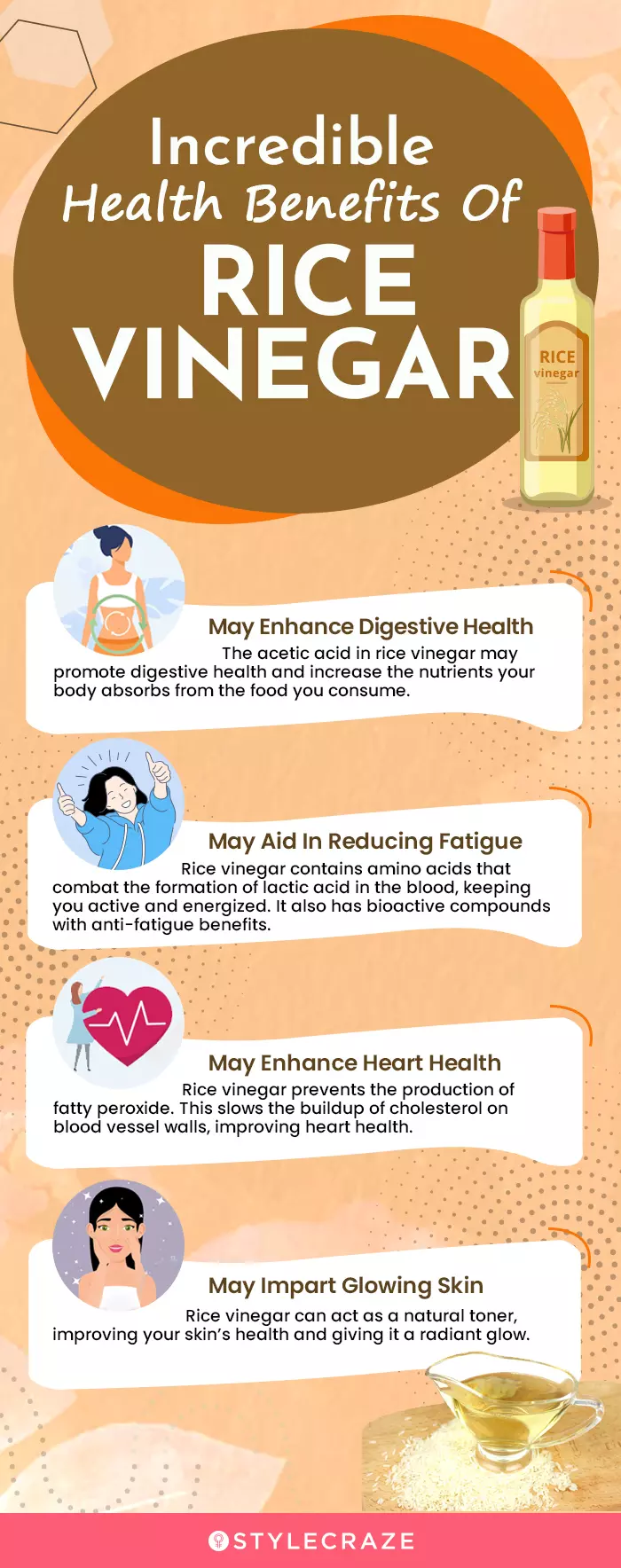
Rice vinegar’s benefits are numerous. It improves digestive health as it contains acetic acid. It also has antiseptic properties, may act as a liver tonic, and help beat fatigue. In addition, the essential amino acids in rice vinegar improve immunity, help manage weight, and promote cardiovascular health. When mixed with essential oils, it also imparts radiance to the skin and acts as an effective face toner. Try including rice vinegar in your routine and reap its benefits.
Frequently Asked Questions
Is rice vinegar high in sugar?
Rice vinegar has moderate amounts of sugar. A 100 mL of rice vinegar has 53.3 grams of sugar.
Is rice vinegar good for high blood pressure?
Yes, rice vinegar is good for high blood pressure as the acetic acid in it is known to reduce systolic blood pressure.
Does rice vinegar have arsenic?
Yes, rice vinegar has arsenic. But the quantity is very negligible. 50 mL of rice vinegar contains only 1 microgram or less of arsenic.
Is rice vinegar a probiotic?
Although rice vinegar is made by fermentation, it is not a probiotic.
Does rice vinegar have sodium?
Yes, rice vinegar has negligible amounts of sodium. A tablespoon of rice vinegar has 0.3 mg of sodium.
Is it OK to drink rice vinegar?
No, drinking undiluted rice vinegar straight may cause dental damage. Always have rice vinegar as a condiment or ingredient in other food items.
Illustration: Amazing Health Benefits Of Rice Vinegar
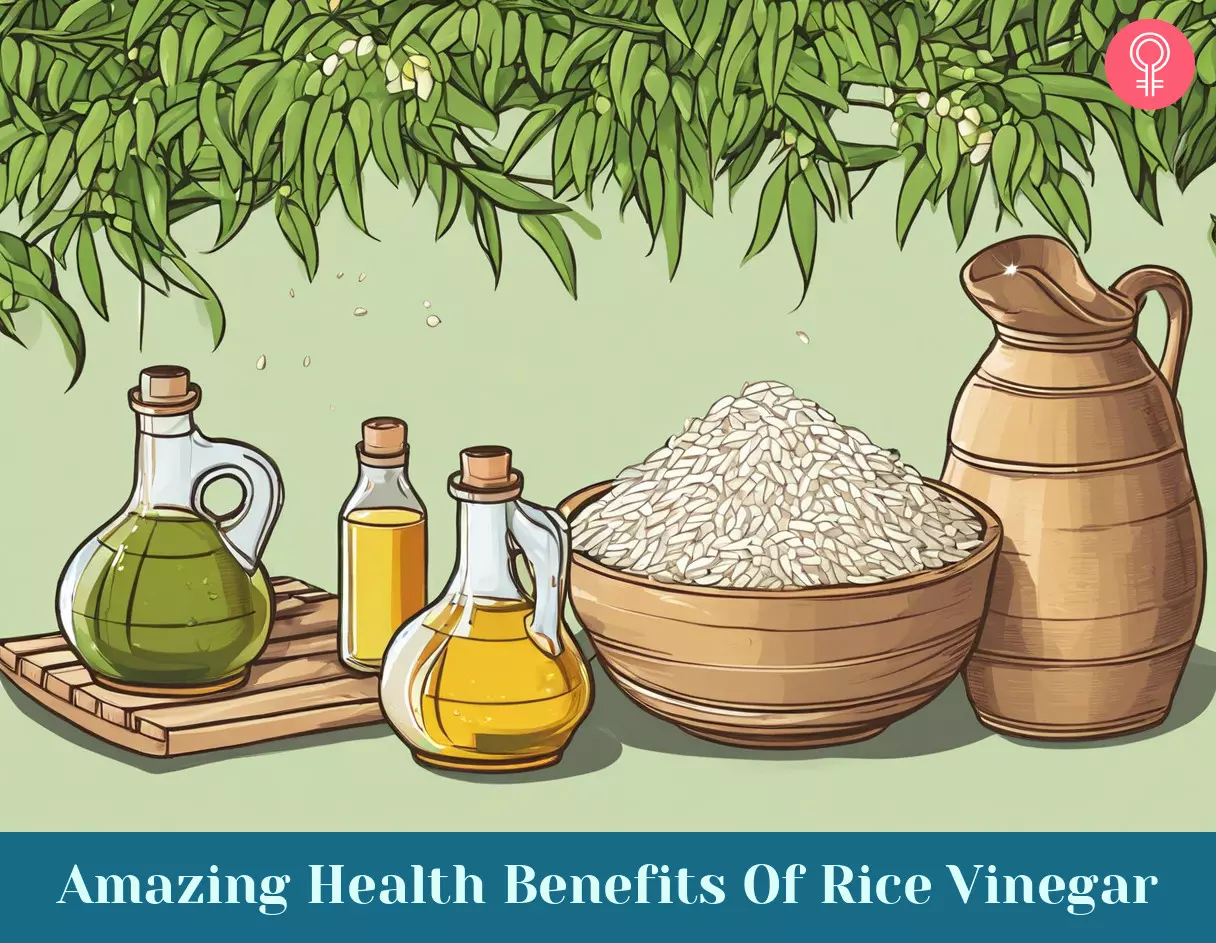
Image: Stable Diffusion/StyleCraze Design Team
Learn about the amazing benefits of rice vinegar. Discover how it can help improve your health and well-being. Check the video to learn how!
References
Articles on StyleCraze are backed by verified information from peer-reviewed and academic research papers, reputed organizations, research institutions, and medical associations to ensure accuracy and relevance. Read our editorial policy to learn more.
- Vinegar Functions on Health: Constituents,Sources, and Formation Mechanisms
https://www.researchgate.net/publication/308748788_Vinegar_Functions_on_Health_Constituents_Sources_and_Formation_Mechanisms - Thai Rice Vinegars: Production and Biological Properties
https://www.researchgate.net/publication/352756423_Thai_Rice_Vinegars_Production_and_Biological_Properties - Protective effects of fermented rice vinegar sediment (Kurozu moromimatsu) in a diethylnitrosamine-induced hepatocellular carcinoma animal model
https://www.ncbi.nlm.nih.gov/pmc/articles/PMC3128363/ - Nutrients and bioactive components from vinegar: A fermented and functional food
https://www.sciencedirect.com/science/article/pii/S175646461930605X - Separation and characterization of the immunostimulatory components in unpolished rice black vinegar (kurozu)
https://pubmed.ncbi.nlm.nih.gov/23810669/ - Oral Amino Acid Administration Decreases Oxidative Stress and Improves Brachial Reactivity in Elderly Individuals
https://academic.oup.com/ajh/article/18/6/858/120575 - Vinegar: Medicinal Uses and Antiglycemic Effect
https://www.ncbi.nlm.nih.gov/pmc/articles/PMC1785201/ - White rice vinegar improves pancreatic beta-cell function and fatty liver in streptozotocin-induced diabetic rats
https://pubmed.ncbi.nlm.nih.gov/20514502/ - Extract of Kurosu, a vinegar from unpolished rice, inhibits azoxymethane-induced colon carcinogenesis in male F344 rats
https://pubmed.ncbi.nlm.nih.gov/15489210/ - RICE VINEGAR
https://fdc.nal.usda.gov/fdc-app.html#/food-details/501396/nutrients
Read full bio of Avantii Deshpaande
Read full bio of Tanya Choudhary
Read full bio of Ravi Teja Tadimalla
Read full bio of Moksha Gandhi






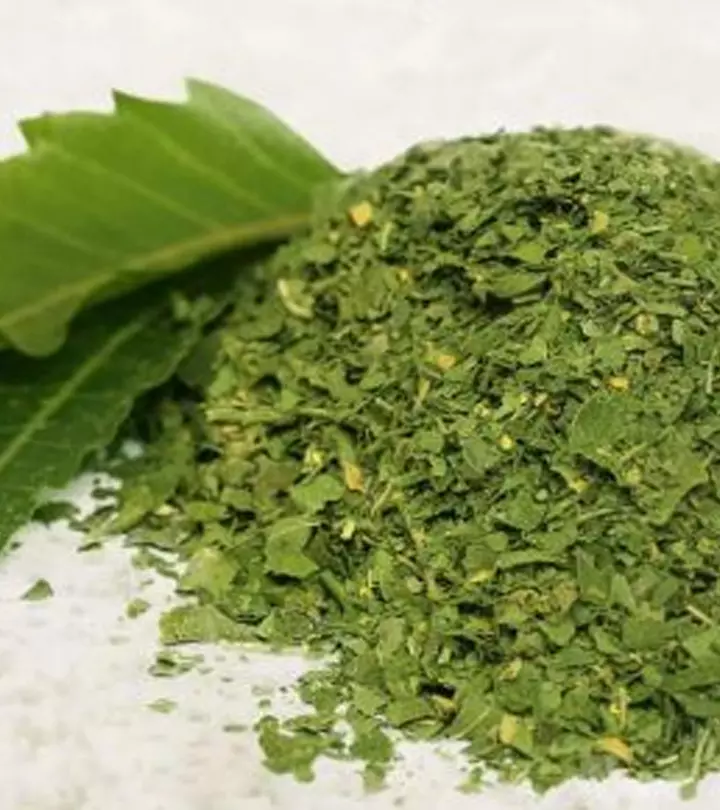
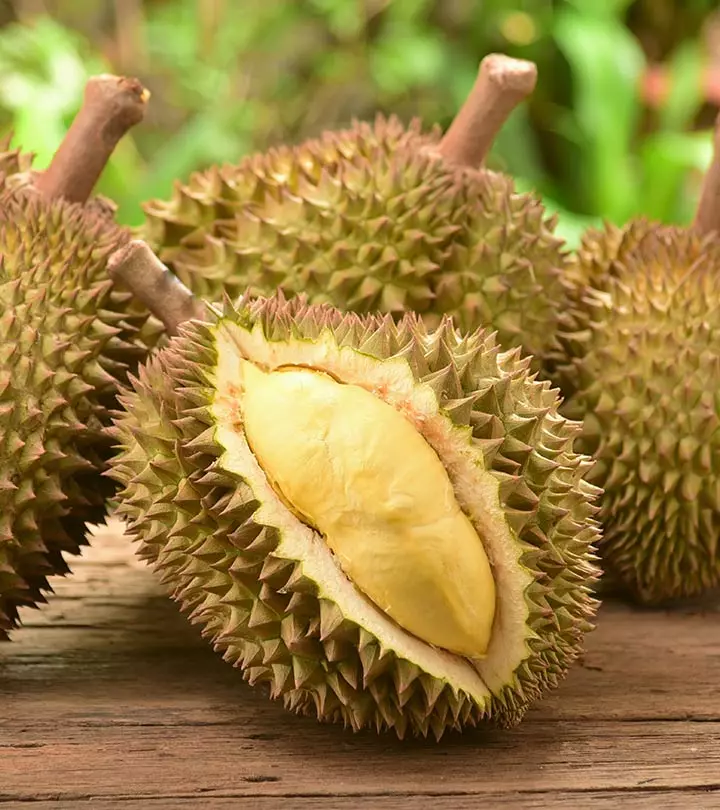
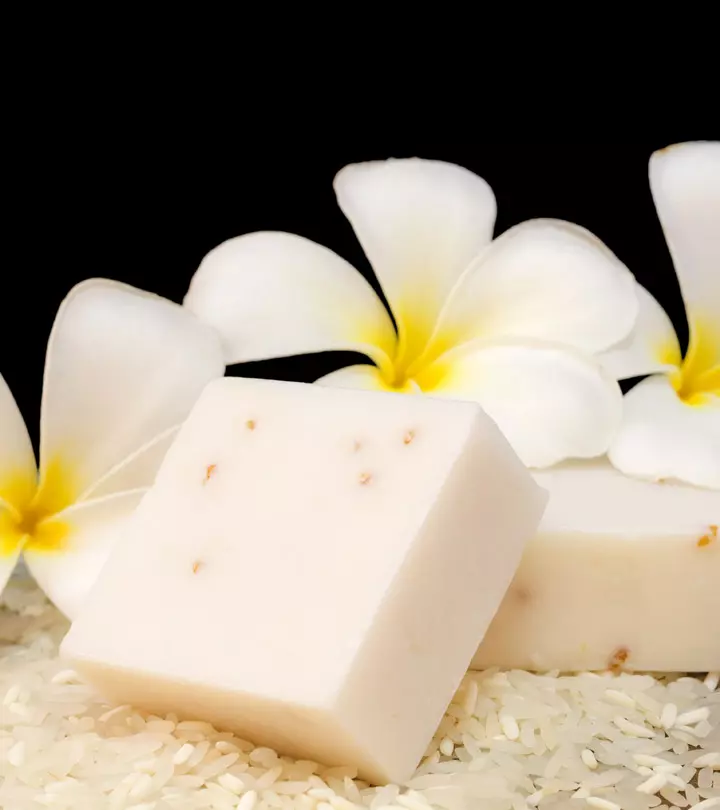
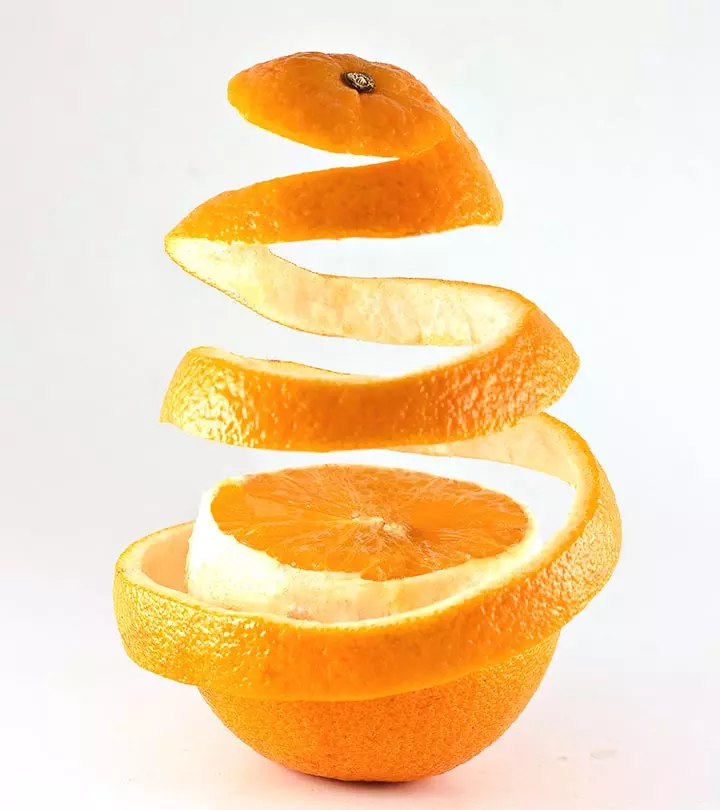

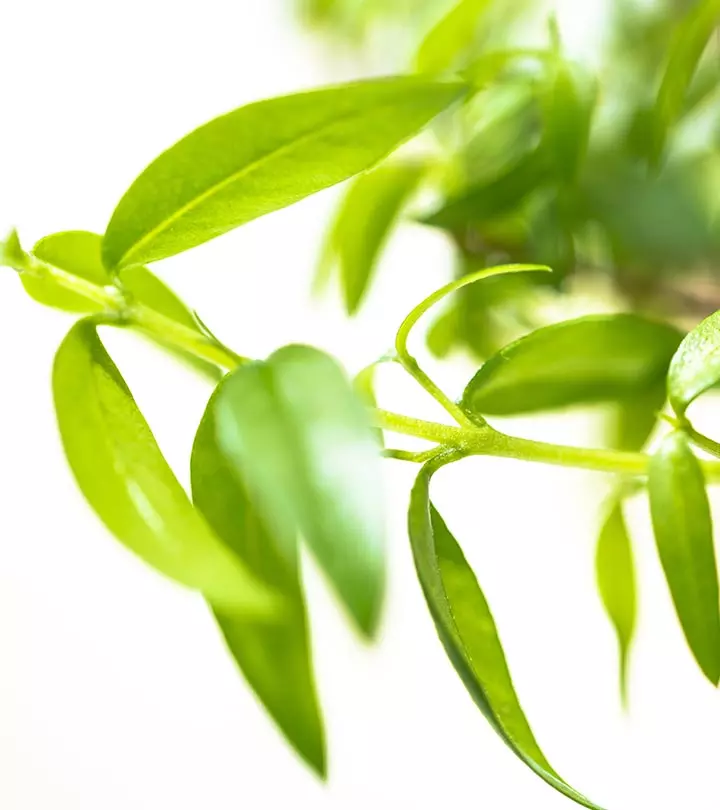
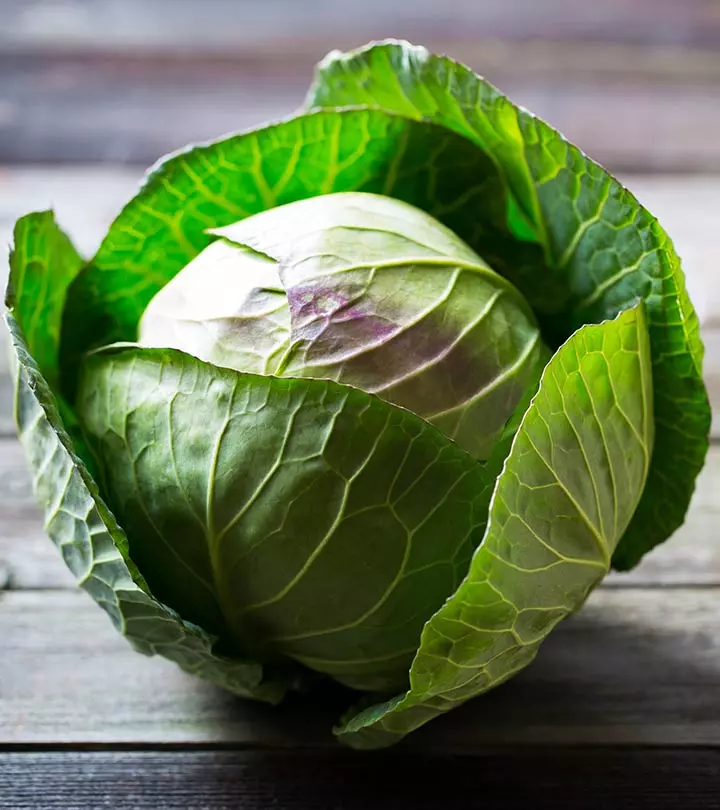
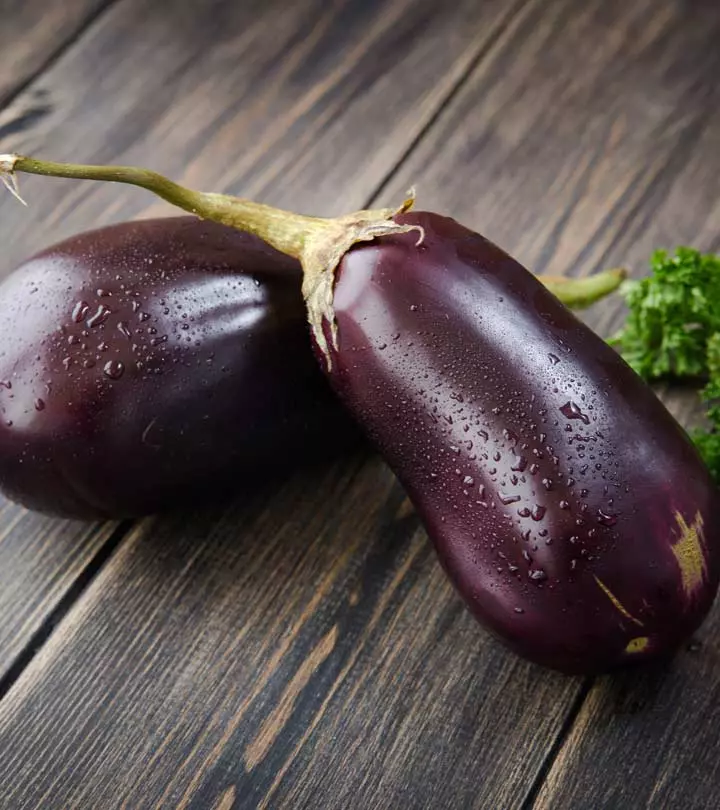
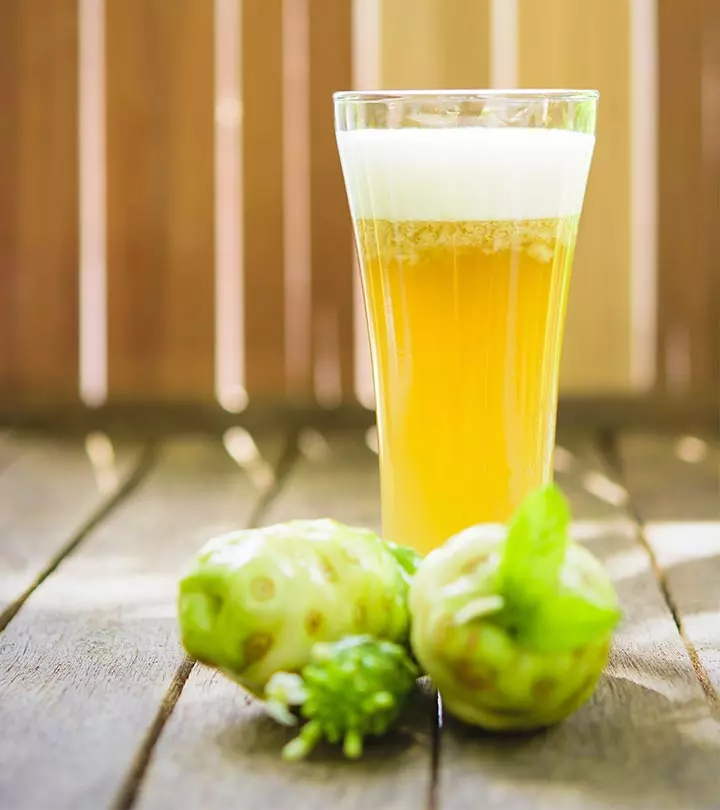
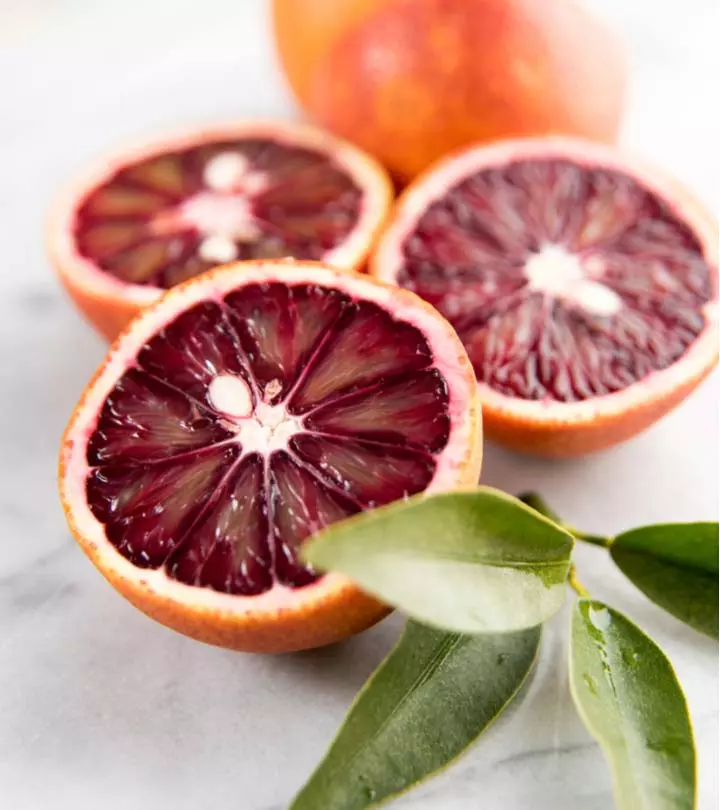

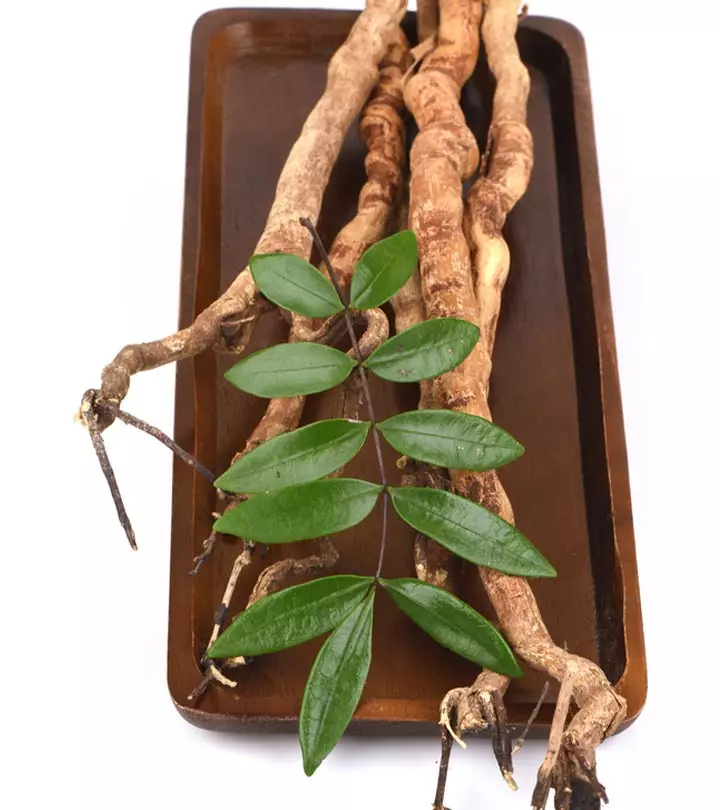
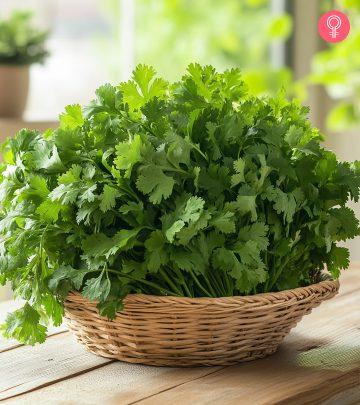
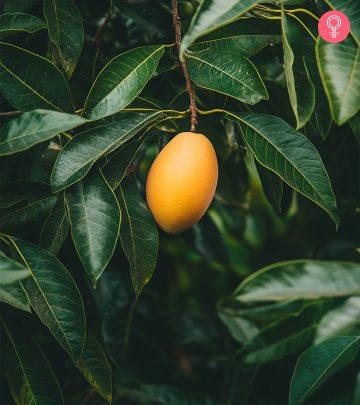
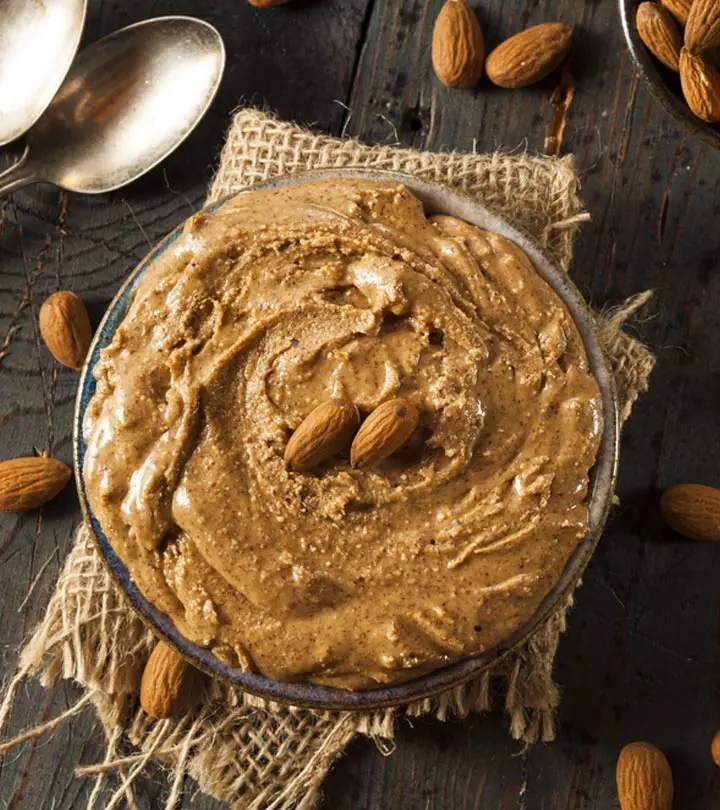
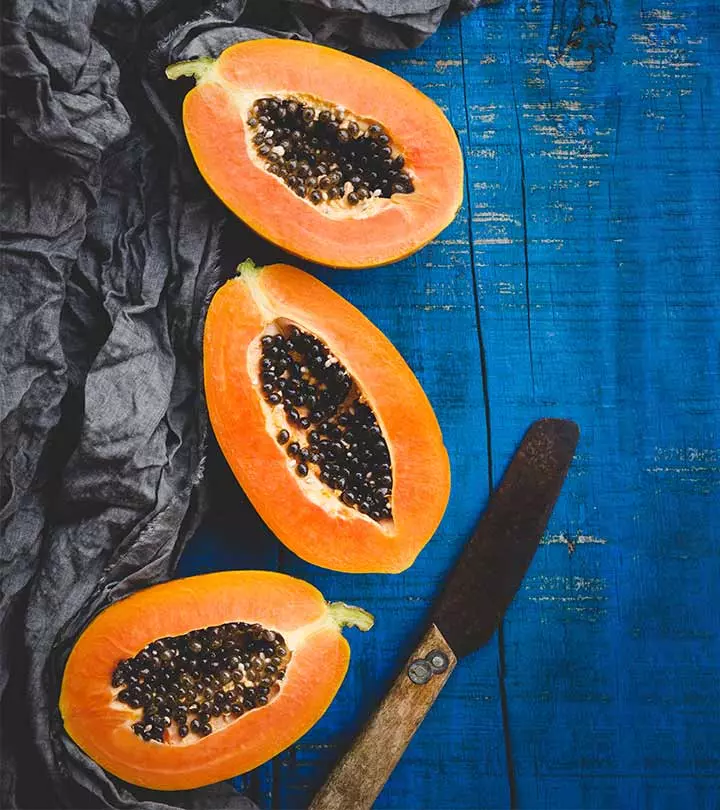
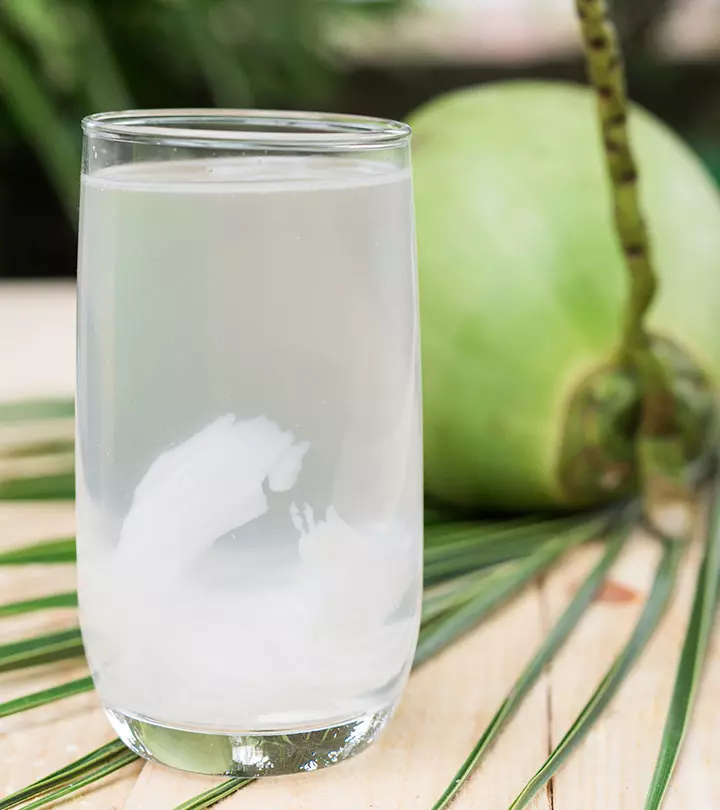
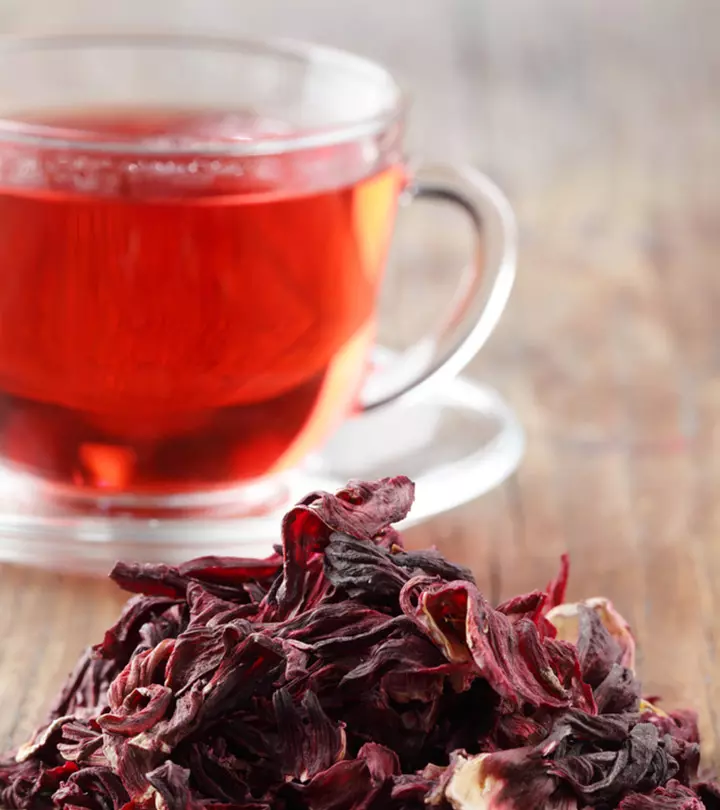
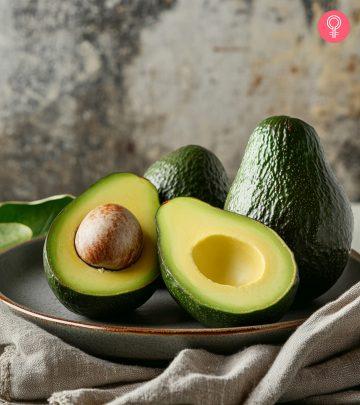
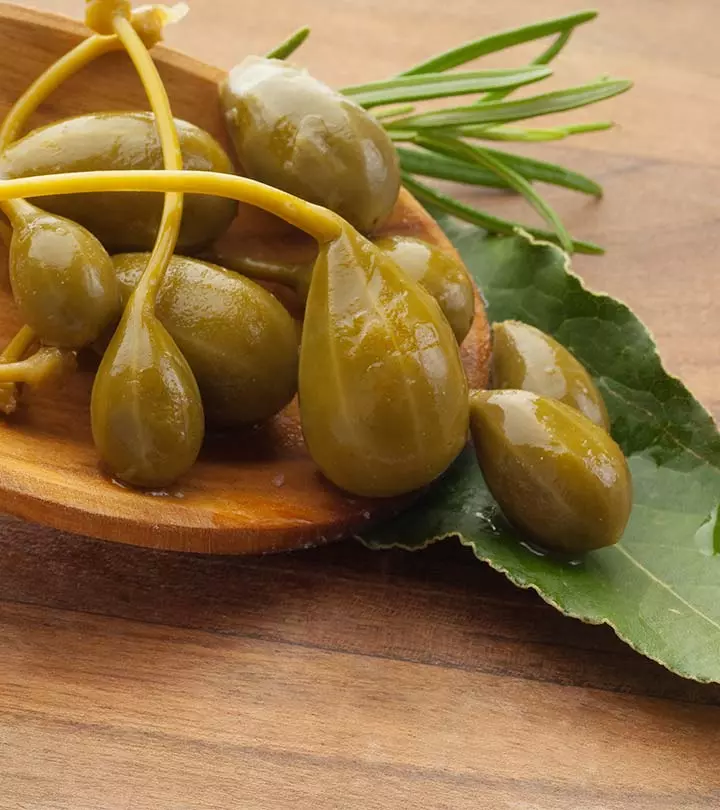
Community Experiences
Join the conversation and become a part of our empowering community! Share your stories, experiences, and insights to connect with other beauty, lifestyle, and health enthusiasts.